There are many different types of vegetarians. This article goes into depth of the many different types of vegetarians so you can decide which plant centered diet is right for you.
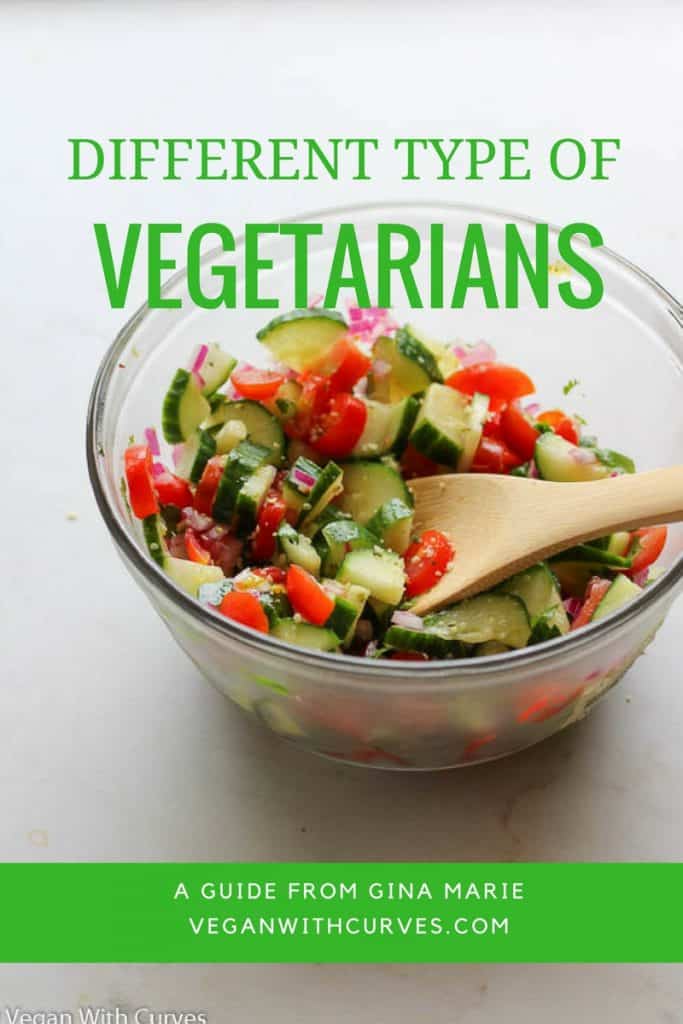
"Oh so you are vegan? That means you only eat fish right?"
I get this more often than I thought I would. In my own ignorance I assumed everyone knew the different types of vegetarians. I assumed that everyone knew what a vegan or vegetarian was. But there is so much conflicting information out there that things can get quite confusing.
That is one reason why I wanted to write this blog post. To give an overall education of the different types of vegetarians. Yes I am bias and yes I desire to help convert as many people as possible over to a vegan lifestyle. But I am also very practical. I know that not everyone will become a vegan. Hopefully shedding some light on the different types of vegetarians will encourage you to eat more plant based regardless of which diet you choose.
Related: How to Eat Less Meat
Definition of A Vegetarian
A vegetarian is one who does not consume animal flesh.
Vegetarian comes from the word vegetation which means to vegetate or to grow quickly (which is what a plant does). So a person who is a vegetarian eats vegetation aka plant based material. On a spiritual level vegetarianism and it's evolving levels, are about eating as pure as possible. Animals are secondary sources of food which makes them heavier and denser.
There are different types of vegetarians But one thing all vegetarians have in common is that none of them eat any type of animal flesh; no chicken, no seafood, and no fish.
[clickToTweet tweet="Vegan is not the only type of vegetarian diet. Which diet suits you better? #vegetarian #vegan " quote="Vegan is not the only type of vegetarian diet. Which diet suits you better?"]
Mislabeled Vegetarians
Flexitarians
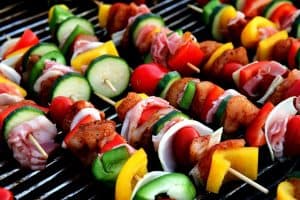
Photo Credit moerschy
Also know as Semi Vegetarians. This is a plant based friendly version of a omnivore diet. Omnivores are people who eat both animals and plants. People who are flexitarians tend to have a large portion of their diet plant based (meatless Mondays, meat on the weekends only, vegan diet before 5 p.m. etc). You can read the different ways to lower meat in your diet here.
Sustainability: Can be if diet is prominently plant based
Ethical: Source from local farmers. Quality is better and those farmers have natural and humane practices
Spiritual: Always give thanks to the animal that sacrifices it's life in order to fuel your body with the nutrition it needs. Respect the animal's life.
Health: Wild animal meat (like deer) are better and less taxing on the body. Seek to make most of diet plant based.
Pescatarians

Photo Credit Robert Owen-Wahl
Gina are you sure? I meet a lot of vegetarians who eat fish?”
Who you met are Pescatarians not Vegetarians. Pescatarians are people who eat fish and sea food, but no other animal flesh. Pescatarian comes from the Italian word pesce which means”fish”. Yes fish are animals. They just happens to live in the sea. Tho Pescatarians do not eat animal flesh, some do include animal by products like eggs, diary, and honey.
Sustainability: Can be sustainable being that fish has a significant lower carbon foot print than land animals.
Ethical: Buy wild caught sea food and seek to make most of diet plant based.
Spiritual: Always give thanks to the animal that sacrifices it's life in order to fuel your body with nutrition it needs. Respect the animal's life.
Health: Wild sea food is 300x better than farm raised sea food. Stay away from from farm raised sea food as much as possible (practically speaking). Seek to make most of diet plant based.
Different types of vegetarians
Lacto-Ovo Vegetarian , Lacto Vegetarian, and Ovo Vegetarian
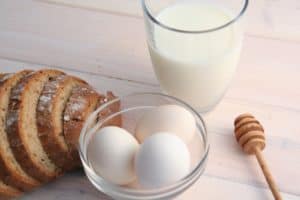
Photo Credit by Joanna Dubaj
Lacto-Ovo -Vegetarians do not consume animal flesh (this includes sea animals like fish) but do consume BOTH diary (lacto meaning milk) and eggs (ovo means eggs ). This is the most common vegetarian in the western hemisphere. Eggs and diary are consume because the animal does not have to be killed in order to maintain the diet.
Lacto -Vegetarians do not consume meat (this includes sea animals like fish) or eggs. The ONLY animal by product they consume is dairy (lacto meaning milk) . People of the Hindu faith are usually lacto-vegetarians because in their beliefs the cow is considered sacred and diary is considered a life saving nourishing food. Also the religious view of Hinduism is a non violence practice and limiting bad karma. Eating eggs are considered potential lives therefore considered bad karma and are not consumed.
Ovo -Vegetarians do not consume meat (this includes sea animals) or diary. The only animal by product they consume are eggs. The reasoning is that eggs are the equivalent to a menstrual cycle for a fowl and it is not a guaranteed life. No fowl is killed in order to sustain the diet.
Sustainability: Can be very sustainable if cow dairy consumption is kept at a minimum. Cow diary (along with beef and lamb) has the highest greenhouse emissions.
Ethical: Source from local farmers. Quality is better and those farmers have natural and humane practices. Overall limit consumption of eggs and diary and make majority diet plant based. Animals in conventional farming are forced to produce bodily by products. Cows are constantly kept pregnant in order to lactate aka produce milk. This is a cruel practice.
Spiritual: Always give thanks to the animal that sacrifices it's life in order to fuel your body with nutrition it needs. Respect the animal's life.
Health: Eat limited amounts unpasteurized raw cow diary . Pasteurized diary (especially pasteurized cow diary) causes excessive mucus build up. Raw Goat and sheep dairy are less taxing on the body but overall drastically reduce diary intake and seek non animal varieties of diary. Check out the VEGAN SUBSTITUTES FOR DIARY resource page. Also limit egg consumption because it contains a high amount of cholesterol. Read Eggs: Superfood or Toxic Burden?
Vegan Vegetarian, Raw Food Vegan Vegetarian, Alkaline Vegan Vegetarian
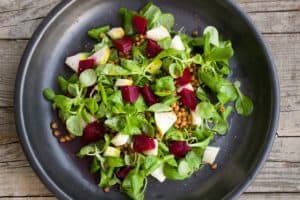
Photo Credit Bernadette Wurzinger
Vegans do not consume animal flesh (that includes sea animals as well), dairy, eggs, or even honey (although honey is highly debatable in the vegan community). Vegan goes beyond diet, it is an ethical stance against exploitation of animals. Vegans do not use products that are made with animal parts (like fur and leather). Vegans do not support zoos, circuses, or any other event where animals are displayed for entertainment. Nor do vegans use products tested on animals.
Raw Food Vegans do not consume animal flesh (that includes sea animals as well), dairy, eggs, or even honey (although honey is highly debatable in the vegan community). They also do not consume cooked plant based food; foods heated above 118 degrees Fahrenheit. The stance is more of a health concern. Food heated above a certain temperature loses its nutritional value and the live enzymes are killed off. This is what makes them different than regular vegans. I emphasis raw food VEGAN because not all raw foodists are vegan. Some raw foodist still consume raw diary, raw honey, and even raw meat (like raw beef and raw fish).
Alkaline Vegans do not consume animal flesh (that includes sea animals as well), dairy, eggs, or even honey(although honey is highly debatable in the vegan community). They also do not consume what is considered hybrid plant based foods foods like corn, lemons, broccoli, cauliflower, soy, etc or starches like potatoes (sweet and white), certain wheat, and certain rices. The stance is that the body should only take in alkaline foods both raw and cooked to support optimal healing and health. The diet is based on the book Mucusless Diet Healing System Mass Market by One of the biggest proponents of this diet is the late Dr. Sebi who has a list of what foods people should only eat from.
Sustainability: Highly sustainable. Plant based foods have a lower carbon foot print than animal based foods. Raw food is extremely sustainable as it uses very little energy to prepare. The more whole plant based foods one eats the less packaging is needed which increases sustainability.
Ethical: Source your produce from local organic farmers. The nutrients are more potent and the energy in how someone grows your food matters. Respect plant life
Spiritual: Always give thanks to Mother Earth for producing food in order to nourish your body. Give thanks to the plant itself. Speak life over your food.
Health: Eat more organic local produce. There is a major difference in conventional produce and organic produce. If not all raw, include a lot of raw food in your diet and overall eat more of a whole foods and less overly processed foods.
Fruitarian
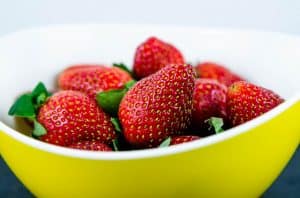
Photo Credit Allan Lau
A fruitarian does not consume animal flesh (that includes sea animals as well), dairy, eggs, even honey (although honey is highly debatable in the vegan community), or any cooked and heated above 118 degrees Fahrenheit. This is a person who eats at a diet that is 75% fruit supplementing with nuts, seeds, and some plant matter that can be collected without killing the plant (that which falls from the tree).
A Fruitarian's stance is that fruit is the purest food on Earth therefore nourishing us without killing plant life. Fruit is pleasant to look at, pleasant to the taste buds, and easier to digest. For these reasons (and other research), it is my personal belief that humans are natural frugivores (not carnivores, not omnivores, not even OT herbivores). This diet is recommend for those who have a calmer lifestyle. Someone who does not have to exert much energy throughout the day and lives stress free.
Sustainability: Fruit is the purest form of food and requires no preparation. It's nature’s fast food.
Ethical: Source produce from local organic farmers or grow your own. The nutrients are more potent. Also the energy and care in how someone grows your food matters. Respect the fruit and the plant that produced it.
Spiritual: Always give thanks to the Mother Earth for producing food to nourish your body and give thanks to the plant and fruit itself. Speak life over your food.
Health: Very easy on your digestive system because it is simple food in it’s original state. Eat a variety of fruit; not just sweet fruit, but botanical fruits like tomatoes and cucumbers. Ground yourself with some denser foods like nuts and seeds. Gradually move into this diet and seek guidance from those with experience.
Soul Centered Diets
The 2 diets below are more for cleansing of the mind and soul than the body. These diets seek to evolve a human beyond body consciousnesses and more into spiritual consciousnesses. These diets are the most sustainable as they required little to no consumption and do the least amount of harm to all living organisms. They are the most ethical and the most healthy for mind, body, and spirit if lead by proper guidance. The following diets are not recommended for the majority of people. One should seek inner guidance to know if they are called on this path, as well as outer guidance to help them achieve it.
Liquidarian
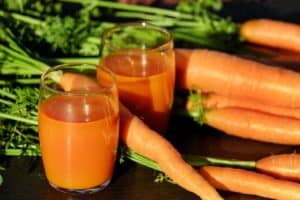
Photo Credit Couleur
A liquidarian does not consume any anything solid whether plant based or animal based. They only take in liquids. This includes water, tea, fresh juice, smoothies, vegan yogurts (mix with a little water to thin out), and raw liquid plant based soups. Thick liquids (smoothies, smoothie bowls, thick raw soups) are essential to this type of diet. The stance is for physical and mental health because of the energy you save in digestion. The food is already “pre-chewed” so to speak (digestion starts in the mouth). Not a diet I recommend for the majority of people but can be an extremely healing if you are on that particularly journey. Otherwise it is best to keep it as a cleansing or detox thing you do periodically.
Breatharian

Photo Credit Orlando
A breatharian does not consume food of any kind. The stance is to live off of prana (oxygen) and light. This level is reach by changing gradually; omnivore to vegetarian to vegan to raw foodist to liquidarian and then eventually TO breatharian. Breatharian is NOT starvation. It’s a high level of consciousness where one has less need for the addiction of consumption. Dr. Jewel Pookrum stated that all vitamins and minerals we need exist within the body and all food does is help activate that which is already within us. This is NOT a diet recommended for most people (including myself). I believe all things are possible but one should proceed with caution if going this route. Your ego should not drive you to pursue this so that you can appear “highly evolved.” This has to be a pure inner and spiritual knowing, something sacred only you will know for yourself.
Having trouble with your vegan diet? Head over to read How to Get Started On A Vegan Journey.
What are your thoughts on different types of vegetarians? Do you agree or disagree? Have any other useful tips to share? Let me know in the comments below!
© VEGAN WITH CURVES. UNLESS NOTED OTHERWISE, ALL IMAGES, RECIPES, & CONTENT ARE COPYRIGHT PROTECTED AND REGISTERED WITH THE U.S. COPYRIGHT OFFICE. MY IMAGES AND WRITTEN CONTENT ARE NOT TO BE USED FOR ANY PURPOSE WITHOUT PRIOR PERMISSION. WHEN SHARING A RECIPE LINK BACK HERE TO THE ORIGINAL RECIPE. WHEN SHARING CONTENT FROM AN ARTICLE LINK BACK HERE TO THE ORIGINAL BLOG POST. READ FULL COPYRIGHT DISCLOSURE.

Logan
Great article! Thank you for sharing such organized information. It's very useful
Jendayi
Great great article sis!????
Gina Marie
I am happy you found this informative. You are very welcome!
Lillie Heard
This is an awesome breakdown!!! Its a wealth of information in this article!!! I shall be sharing it.